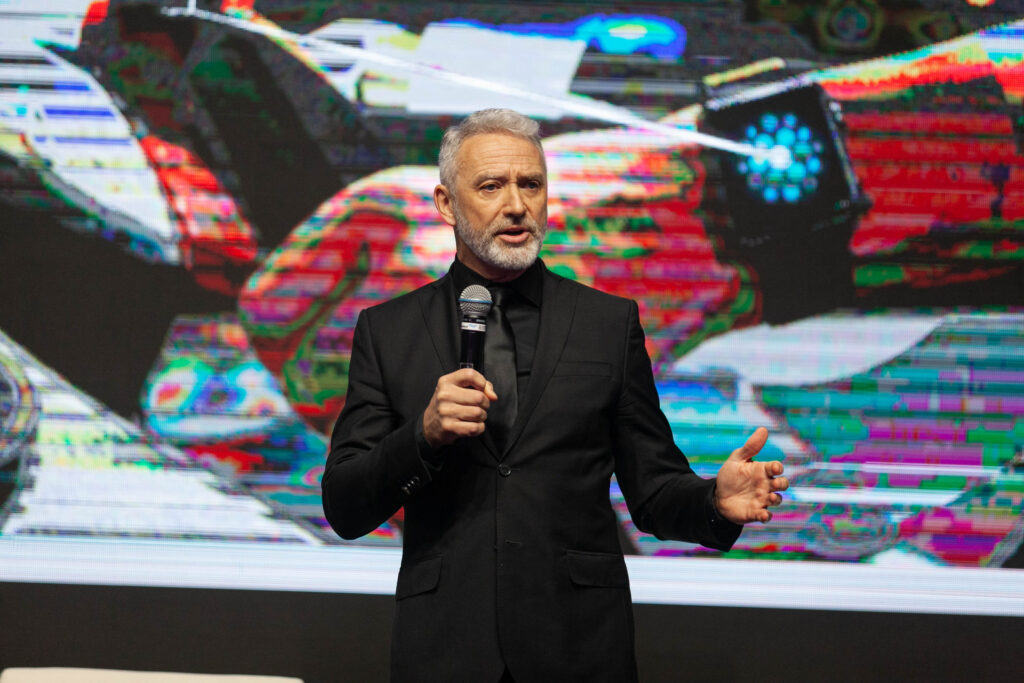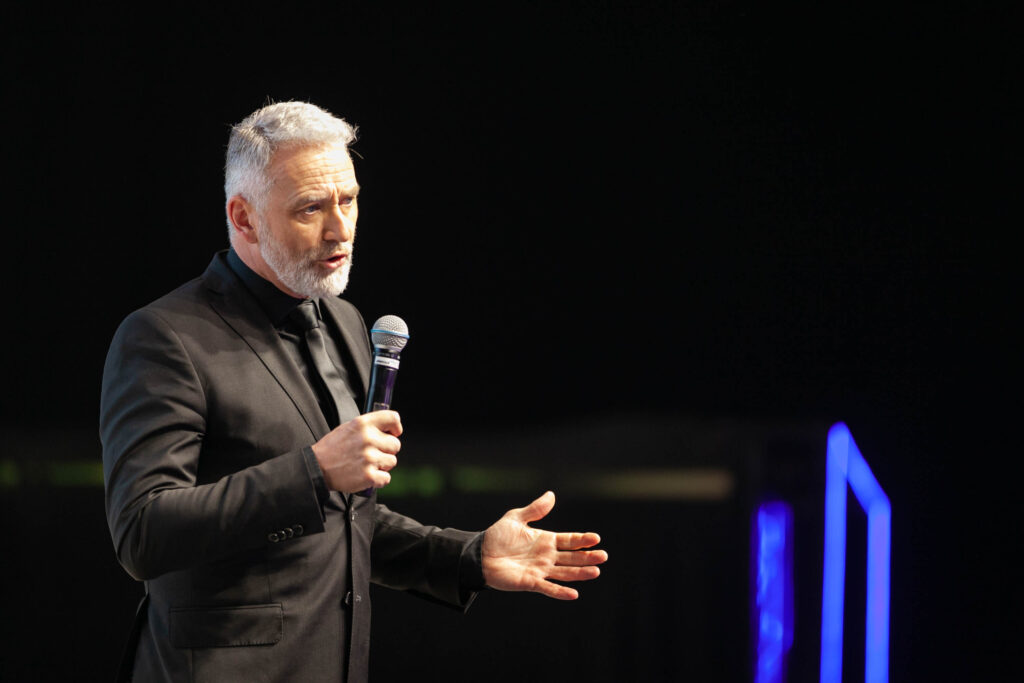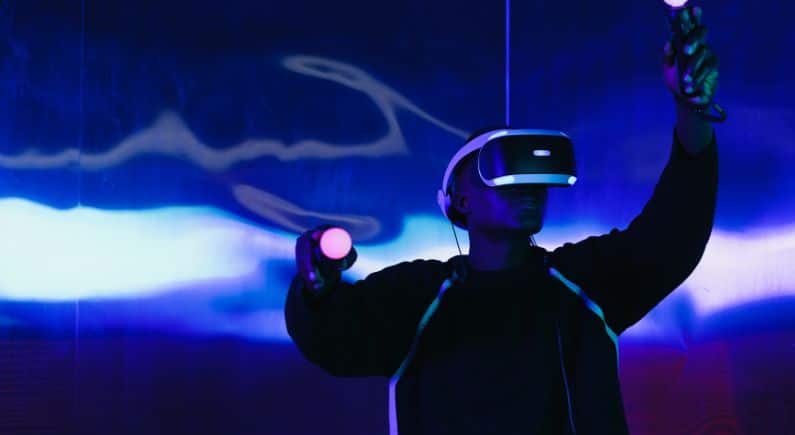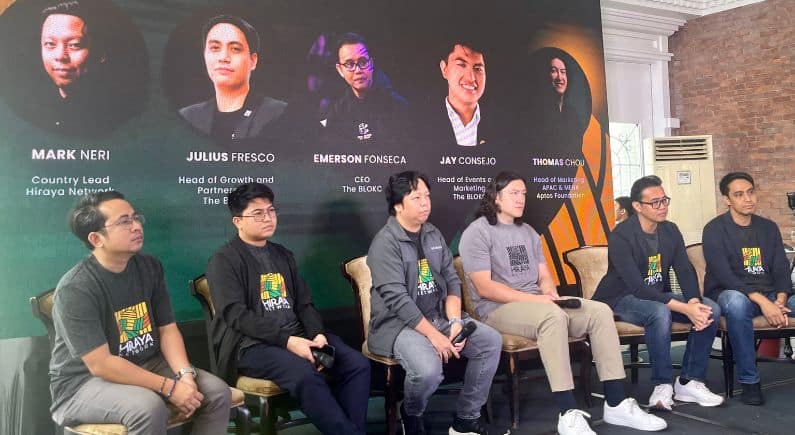[WATCH] Innovation and the year 2029 with Lars Rinnan at AIBC UAE 2022
![[WATCH] Innovation and the year 2029 with Lars Rinnan at AIBC UAE 2022](https://aibc.world/wp-content/uploads/2022/04/Lars-Rinnan-Background.jpg)
Addressing the AIBC Summit, Lars Rinnan began with a simple question. “Will we go to rock concerts with robots playing ACDC in 2029?”
While meant in jest, this question hides a macrocosm of nuances that highlight many of the shifts in economy and society that we may see in the very near future. Will automation render even creative jobs obsolete? Will the common man have agency in an AI-driven future?
Putting these concerns to rest, Rinnan stated that we’ll probably still go for flesh-and-blood bands and all the eccentricity that comes with them. This being said, he noted that the way we eat, the way we travel and the way we work are due for a massive disruption.
Maybe you won’t have a normal job. You quite certainly won’t own your own car and maybe the hamburger you’d be eating would be made in a laboratory. What’s even better is that the world may not have poverty, pollution, famine, and maybe even disease would be a thing of the past.
As the CEO of Amesto NextBridge and a seasoned futurist, Rinnan’s keen insight into the potential of Deep Tech as informed by his background in business intelligence and AI makes him a leading oracle into what the future may entail. According to him, the main lynchpin of this transformation is the exponential growth in computing intelligence that can already be seen today.
It’s an important milestone because then [in 2029], a cheap thousand dollar computer will have the same computing power as your brain. That means he can do just about any cognitive task that a human can do only faster, better and cheaper.

Moving towards automation, a necessary and divisive aspect of enhanced computation, Rinnan notes that we should be excited rather than worried about an AI-augmented workforce. Arguing that half of the jobs in 2029 will be automated, he noted that these jobs will be hardly missed.
All the boring, dirty, and dangerous jobs will be gone and no one will miss them. All the routine jobs will be automated to a large extent. Storage work will be done by drones and robots, accounting will be done by algorithms etc etc
He also expanded on the topic by pointing out that the jobs left would be significantly augmented by artificial intelligence and other frontier technologies such as AR, VR and Machine learning. He also elaborated on the fact that we may see the very nature and even necessity of work change. He noted that we may see the rise of UBI policies given that automation and hyper-efficiency would allow the economy to support more of the population without issue.
That income will come from universal basic income, financed by taxation of the hyper profitable companies like Facebook, Google, Amazon, you know them.

Moving towards energy and transportation, Rinnan noted how we may see a much more sustainable and (quite literally) brighter future to look forward to. Advances in energy harvesting and in the efficiency of energy-intense systems will lead to groundbreaking advancements in the fight against Climate Change.
While our energy output will be augmented through these advancements, the very food we eat will be disrupted for the better through new methods such as hydroponic farming.
Done indoors with 99% less soil, 90% less water, no pesticides and no seasons. This is 300 times more efficient than traditional farming.
From Bespoke 3D printed food tailored to your own metabolism to nanomachines that protect your health, Rinnan concluded by illuminating the main motive force behind all of these future disruptions; exponential progress.
The problem is people don’t understand the difference between linear and exponential progress. 30 linear steps are 30 metres, 30 exponential steps are a billion metres. So people tend to think linearly, but technology is developing exponentially, doubling every 18 months. This is why all of this is possible.
Asking us to look to the Future from the Present, Rinnan shows us that we may have more to look forward to than one would think. For more panels on Tomorrow’s Economy, follow the AIBC Summit on Youtube.






